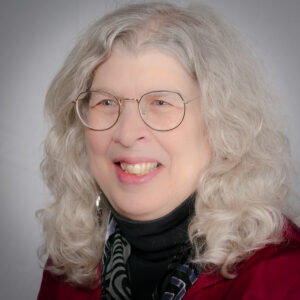
Shields is firmly committed to active learning. “What I learned from being a parent and teacher to my kids is that students don’t remember the things that they read or hear, as much as the things they figure out, and it’s especially true with people who learn like I do. I can read multiple books and don’t remember as much as I’d like until I actually have to use the ideas and information in them—for writing and teaching.” Shields puts active learning into practice in the classroom by getting students to think about historical themes through the prism of something concrete. In Iraq beyond Conflict, her course on Iraqi history, Carolina students organized a conference to introduce Iraqi arts to K-12 teachers. “The students wrote the program, introduced the speakers, and summarized the issues for the teachers,” she recalls. For these students, communicating information about Iraqi culture to a wider audience made the experience of taking the course memorable and meaningful.
Shields, whose survey course on the Modern Middle East has become a staple of the history curriculum at UNC, has never shied away from experimenting in the classroom. She strives not only to help students move beyond false narratives about the region, but to think about history in terms historians don’t always employ. “While most history courses on the region follow the region’s history from the end of the 18th century to the present, Shields shifted from teaching history in a linear trajectory to thematic modules,” notes Emma Harver, Outreach Director for the UNC-Duke Consortium for Middle East Studies. “Dr. Shields stands out as an exemplary educator who is genuinely passionate about her students, her courses, and teaching.”
In recent years, Shields has applied the same spirit of originality, and the same verve, to a new seminar on water in the Middle East. She attributes the idea to her daughter, Kate, a UNC graduate who is now working in the Aral Sea Basin in Uzbekistan as part of her dissertation research on political ecology and water resources at the University of Oregon’s Department of Geography. “Kate told me I had to teach water courses: ‘How can you teach the Middle East without water?’” She has now offered courses on water in the Middle East as a First Year Seminar, an Honors Seminar, and, most recently, as a Course-based Undergraduate Research Experiences (CURE) class, gives students the opportunity to use mapping technologies (including ArcGIS, and the “amazing resources” available on the second floor of Davis Library) to explore the human consequences of dams. Using story maps, the students were able to chart how dams resulted in the dislocation of people. Many were surprised by the results of their projects. “What the students were most impressed with wasn’t so much the environmental consequences of dams, but the human consequences of changing the course of rivers. The communities that were completely flooded out tended to be minority communities like the Nubians [in Egypt] and the Kurds [in Turkey], while majority ethnic groups would end up with more water to use for agriculture and electricity.” In short, the students ended up with a lot more than they bargained for in a history course on water. “They were completely fascinated by how dams are not a natural choice; they are always a political choice with political and human consequences.”
Harver notes how Shields’ courses have successfully “demonstrated why understanding history is so essential to resolving current crises in the region.” While echoing Harver’s assessment concerning Shields’ “long-lasting contributions to the field of undergraduate education in Middle East studies,” the department community looks forward to the new topics and methodologies she will introduce into the classroom closer to home
